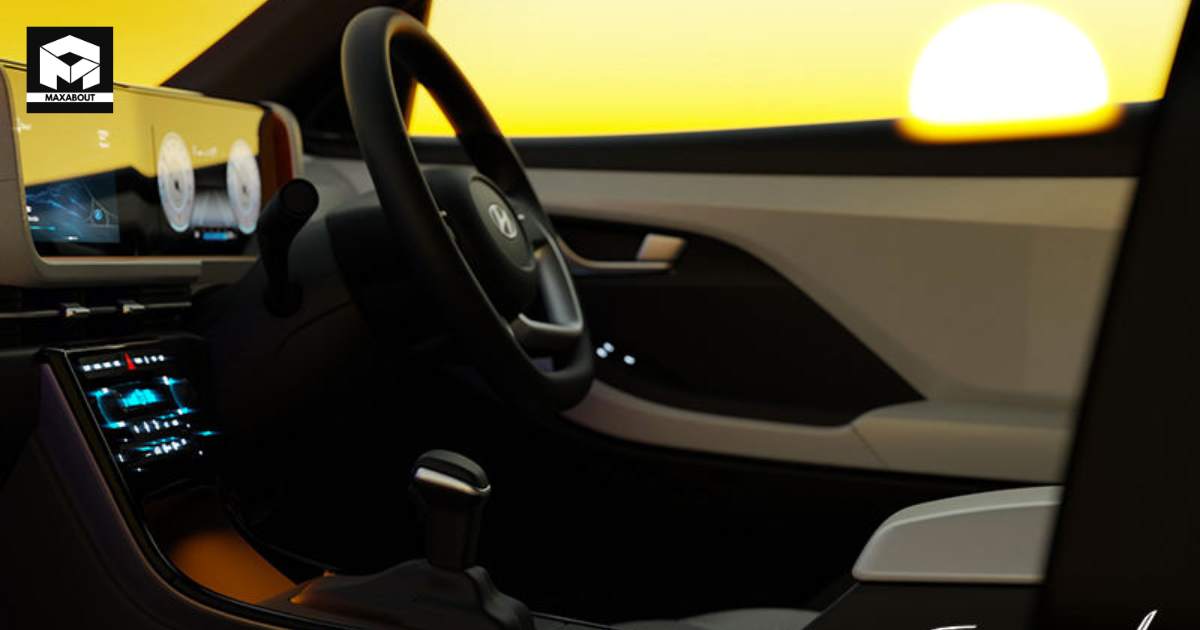Hyundai has unveiled the 2024 Creta facelift ahead of its official launch. Prior to the reveal, the Korean carmaker released design sketches previewing the facelifted Creta’s design. In this read, we will compare these sketches with the final model, decoding what all has changed and carried forward. In the journey from initial sketches to the final production model, a meticulous process unfolds, transforming creative visions into tangible, road-ready vehicles.
Sketches that Speak
The first stage in the evolution of the Creta Facelift involves a series of sketches that outline the broader strokes of the design language. At the rear, the facelifted Creta retains most of the bits as seen in the design sketch, featuring a connected LED taillight setup and the updated bumper which gets cladding and an updated silver skid plate. Overall, the final production model of the 2024 Creta facelift maintains a similar design to the sketches, without any major revisions.

From Paper to Prototype
The transition from sketches to the production model is a meticulous process that involves the translation of 2D concepts into a three-dimensional reality.
Design Refinements
As the prototype takes shape, design refinements come into play. From the sketch images, the Creta’s design does look exaggerated and more beefy when compared to the final model, especially the wheel arches and bumper. But kudos to Hyundai for retaining most of the bits such as the squarer grille, full-width LED DRL, and updated LED headlights housed in the bumper. Yes, the bumper isn’t as chunky as the one in the sketch, but it does give it some much-needed muscle.
The production model starts to emerge from this refinement phase, showcasing a more tangible representation of the design team’s creative aspirations. Each curve, contour, and feature is scrutinized to achieve the perfect synthesis of style and functionality.
Balancing Act: Sketches vs. Production Realities
While the initial sketches set the stage for the Creta Facelift, the journey to production involves a delicate balancing act. The production model, while remaining true to the essence of the sketches, may undergo subtle modifications to align with real-world constraints. For instance, the intricacies of aerodynamics play a pivotal role in shaping the final form of the Creta Facelift. The production model may feature aerodynamic enhancements, such as optimized body lines and airflow management, that were not fully evident in the initial sketches.

The Interior Evolution
While exterior design takes center stage in the initial sketches, the evolution from drawings to the production model extends to the interior. Hyundai has also adopted a distinct approach for the facelifted Creta’s interior that has been fully revealed, borrowing some of its cues from its premium models. The 2024 Creta features a new dashboard layout with a dual-screen setup for the infotainment system and digital driver’s display. In the powertrain department, the 2024 Creta will be offered with a new 1.5-litre turbo-petrol engine along with existing options of 1.5-litre naturally aspirated petrol and diesel engines. As the Creta Facelift transitions to production, the interior undergoes a meticulous refinement process. Ergonomics, material quality, and the integration of technology are fine-tuned to deliver a premium and comfortable driving experience
Advanced Technology Integration
One of the significant aspects that may evolve from sketches to production is the integration of advanced technologies. While the initial sketches may capture the essence of technology features, the production model brings these features to life. The 2024 Hyundai Creta facelift is all set to be launched on January 16, 2024. It is expected to command a premium over the current model, which starts from Rs 10.87 lakh (ex-showroom). It will continue to rival the likes of the Kia Seltos, Maruti Suzuki Grand Vitara , Honda Elevate, Volkswagen Taigun, Skoda Kushaq, and MG Astor.
2024-01-11 19:50:01
